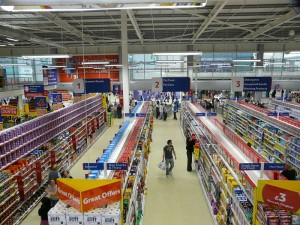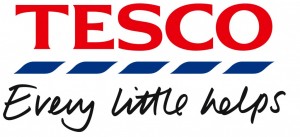Many companies want to promote sustainability within their markets since it attracts more customers, however competition and living within specific limits are stopping them from achieving this goal. Sustainability, which includes sustainable design, building and operations, is the collection of strategies and policies employed by companies in order to reduce their overall impact on the future generations. By taking waste from one part of the production process and using that waste to generate new product is a great way to minimize the consumption of limited natural resources and maintain their availability for the future.
 It is very important for management to set goals and develop a strategy when searching for improvement opportunities in order to implement a sustainability program within their company. I think it is much easier being sustainable than going green and many other companies are following in such footsteps.
It is very important for management to set goals and develop a strategy when searching for improvement opportunities in order to implement a sustainability program within their company. I think it is much easier being sustainable than going green and many other companies are following in such footsteps.
For instance, Tesco, a British multinational grocery store and third-largest general merchandise retailer in the world measured by revenues and second-largest measured by profits, has recently planned out new business strategies and goals in three various areas, one of which is to reduce food waste globally and become a more sustainable company.
Research by Tesco shows that about one third of the world’s food is never eaten and instead it is thrown out or left to rot. Therefore, Tesco is planning to pursue this food waste issue in three crucial areas which are: its own operations, the supply chain and agriculture, as well as the customers. The company has the ability to track down waste and find where it happens as it leaves the farmer’s field and reaches the customers’ home, and everything that happens in between.
According to the article, Tesco claims that around 32 percent of food is wasted across its value chain, of which 16 percent comes from the supply chain and agriculture, the other 16 percent coming from customers and less than 1 percent is from the retailer.
Because of the large amount of food waste across all markets, the company is working to develop an advanced measurement for the amount of food ruined in its operations. This will permit Tesco to track progress through a period of time which can significantly minimize the waste as well as achieve its goal of sustainability. Since the food waste is much lower in the UK than in other markets, it plans to follow in their specific operational practices and more precise forecasting so that food does not rot or is thrown out with the high supply rate.
Being more transparent and sustainable for a company with a global marketplace is tough, however, Tesco hopes that by keeping a strong track record of its waste management will lead to a decrease in the food waste levels throughout its value chain, attract more customers, and keep increasing its profits.
Do you think the tracking record will achieve greater sustainability for Tesco or should they examine other ways to manage their inventory and to minimize the overall food waste?
Source: http://www.environmentalleader.com/2013/05/29/tesco-announces-goal-to-reduce-food-waste-globally/
